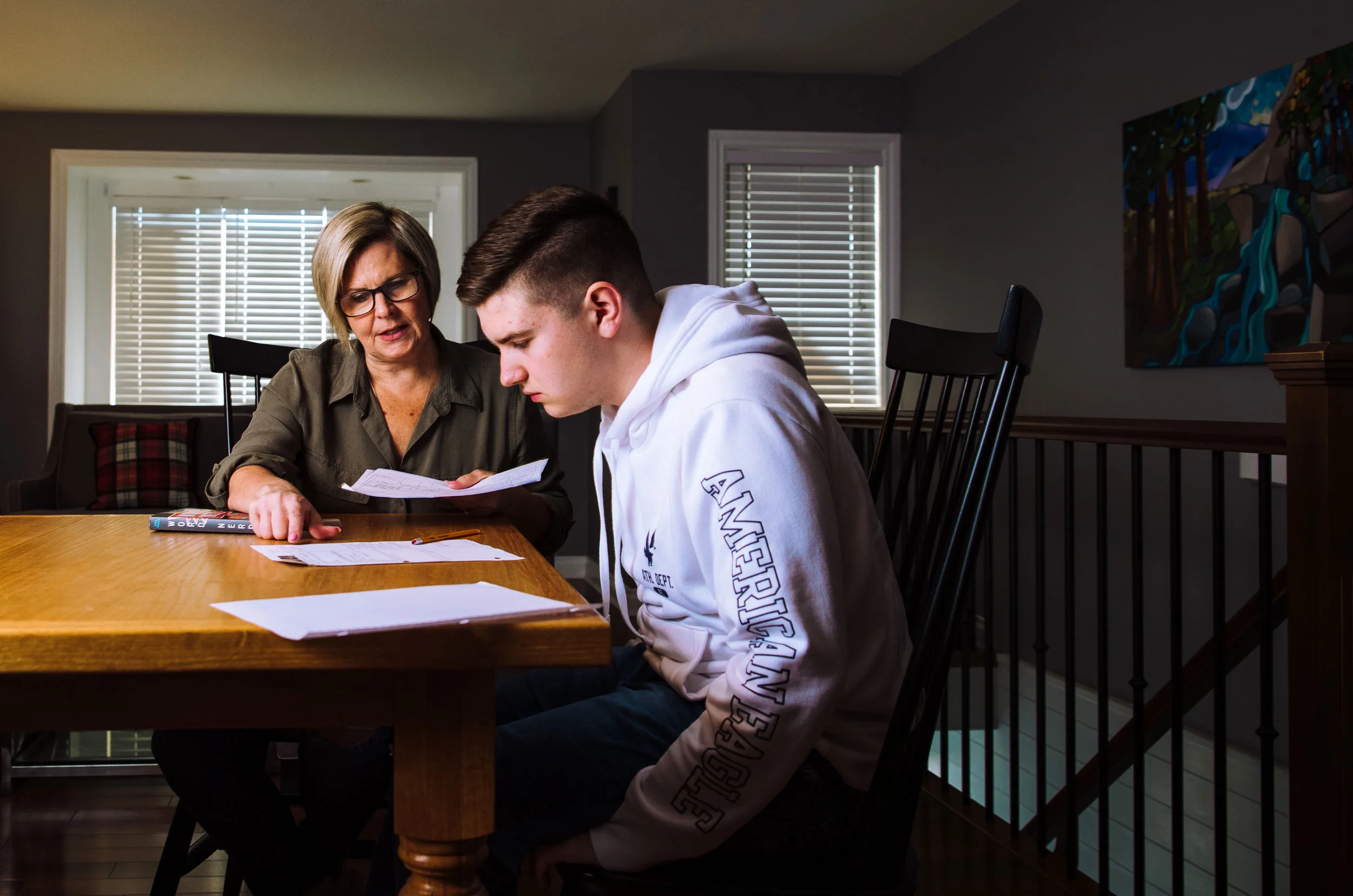#BackToSchool #AllMeansAll #Inclusion
All students belong in the classroom
Inclusive education welcomes all students into regular classes with their same-age peers. With support and accommodation, equitable opportunities ensure that every student can learn, contribute, and participate in all aspects of school life.
Inclusive education means designing schools, classrooms, programs and activities so that all students participate and learn together. Inclusive public neighbourhood schools are the heart of our communities and of quality education systems.
Features of Inclusive Schools
- All students are welcomed and valued for who they are.
- All students are supported to set personal goals and build on individual strengths.
- All students have equitable access to learning, with accommodations and support as required to overcome systemic barriers and discrimination.
- All students are supported to interact, play and collaborate with other students their
own age. - Parents are welcomed as respected partners in their child’s education and local school
community. - School-wide commitment to upholding a safe, welcoming and supportive culture that
emphasizes belonging and respect for diversity.
Please share our #BackToSchool banner: All students belong in the classroom
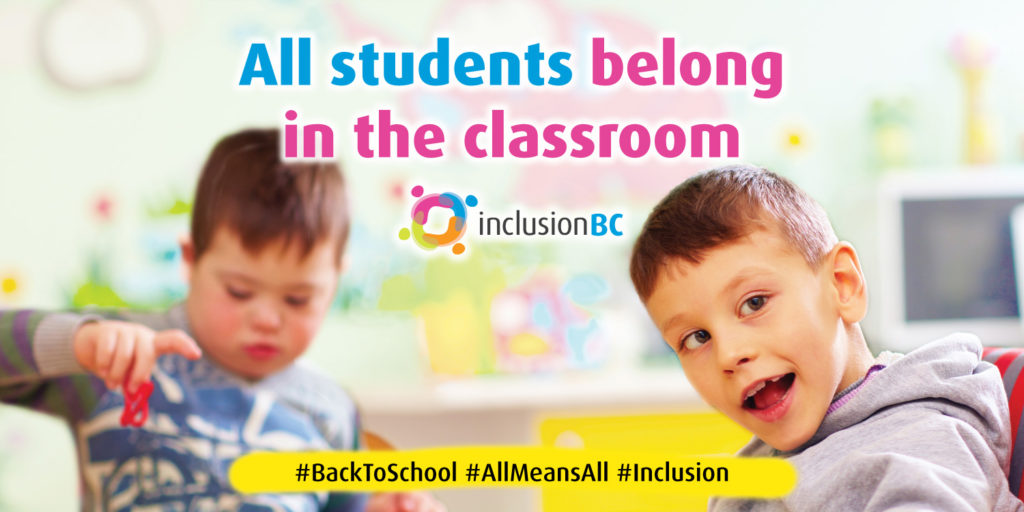
External #BackToSchool Resources
Alana Institute of Brazil: What is inclusion?
The Alana Institute of Brazil produced an international report entitled, “A Summary of the Evidence on Inclusive Education“. Their paper describes the educational experiences of students with disabilities using four categories:
- Exclusion occurs when students are directly or indirectly prevented from or denied access to education in any form.
- Segregation occurs when the education of students with disabilities is provided in separate environments designed or used to respond to a particular or various impairments, in isolation from students without disabilities.
- Integration is a process of placing persons with disabilities in existing mainstream educational institutions, as long as the former can adjust to the standardized requirements of such institutions.
- Inclusion involves a process of systemic reform embodying changes and modifications in content, teaching methods, approaches, structures and strategies in education to overcome barriers with a vision serving to provide all students of the relevant age range with an equitable and participatory learning experience and environment that best corresponds to their requirements and preferences. Placing students with disabilities within mainstream classes without accompanying structural changes to, for example, organization, curriculum and teaching and learning strategies, does not constitute inclusion. Furthermore, integration does not automatically guarantee the transition from segregation to inclusion.
Source: The Alana Institute of Brazil released an international report entitled “A Summary of the Evidence on Inclusive Education
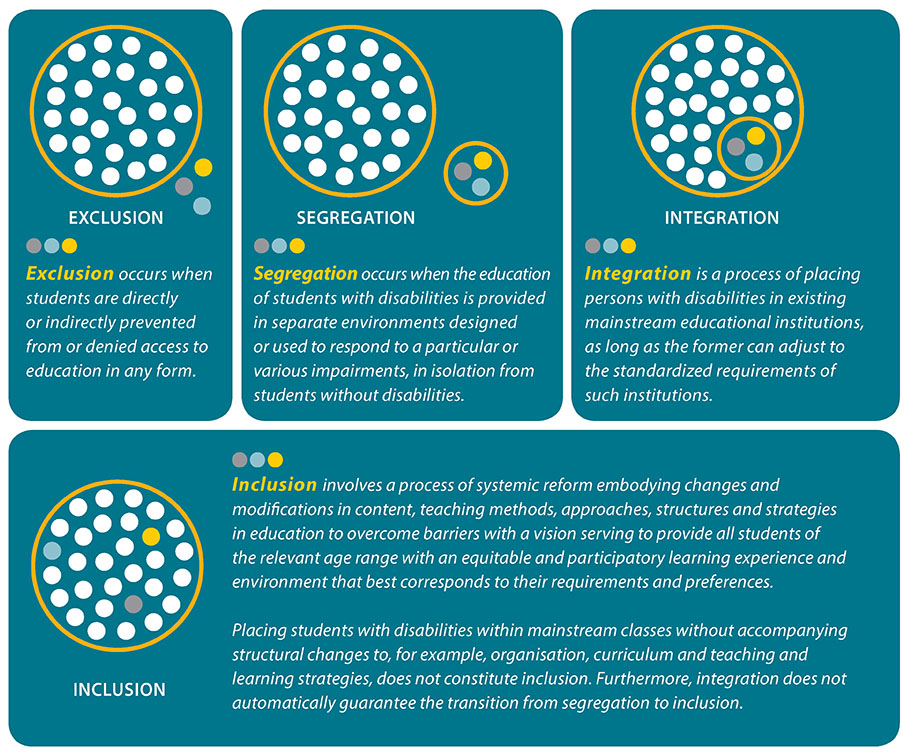
Source: United Nations Committee on the Rights of Persons with Disabilities General Comment No. 4
Inclusion International: All Means All
Inclusion International has created a campaign to focus attention on Inclusive Education.
ALL MEANS ALL. Not “a few”, or “some”, or “most”, or “almost everybody”. Not even “all except one”. Everyone! Take #ActionOnInclusion, demand #InclusiveEducation
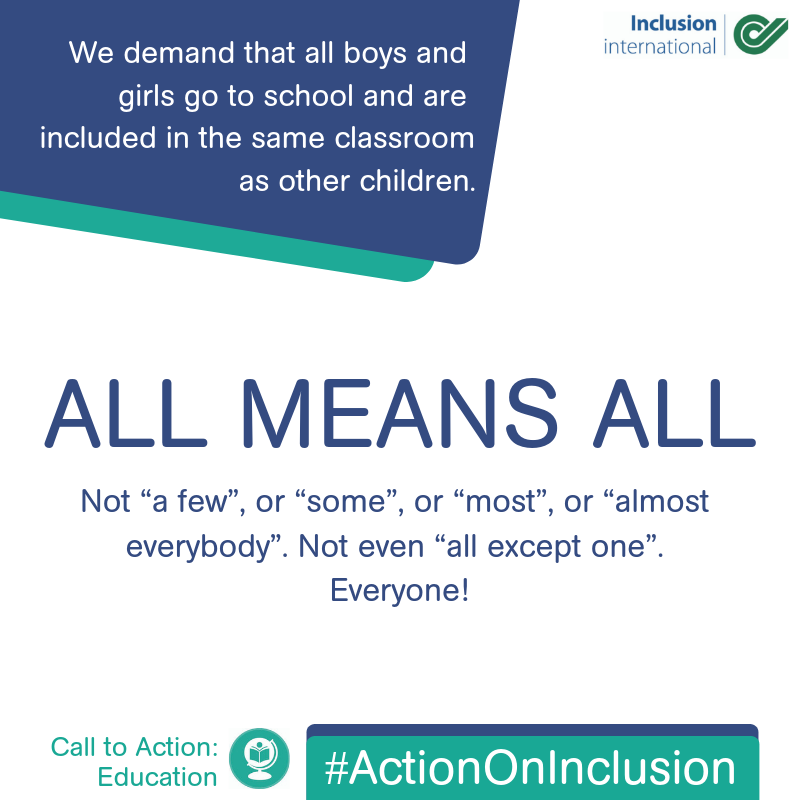
Equitable access for all students is a fundamental civil right
Behaviour is often cited as a key barrier to inclusion: we can overcome failure, exclusion and victim-blaming by understanding and effectively addressing root causes of problem behaviour among students with learning challenges. Inclusion is not about place or integration or about building a “Special” Ed system for “special” kids, but about creating a safe, nurturing and welcoming school-wide culture for all.
Kristin Wiens: The ABC’s of Inclusion
Created by Kristin Wiens (@kwiens62). Kristin is the Special Education Curriculum Coordinator at School District 62 in Victoria, B.C.
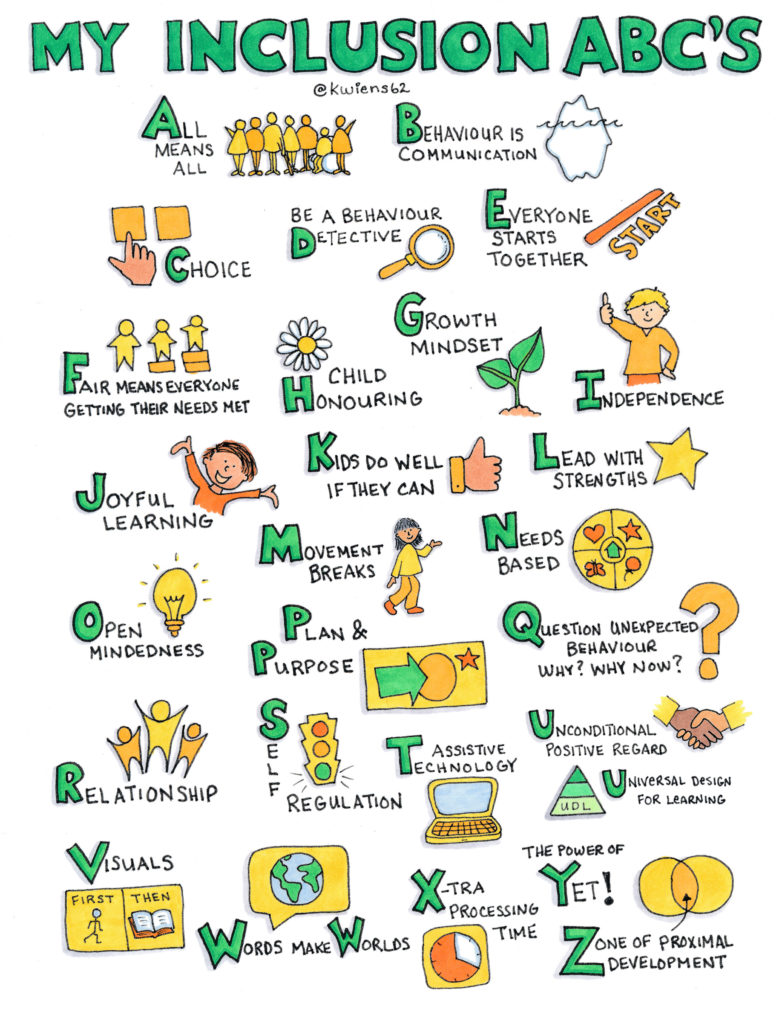
“The ABC’s of Inclusion” Created by Kristin Wiens (@kwiens62). Kristin is the Special Education Curriculum Coordinator at School District 62 in Victoria, B.C.
External #BackToSchool Resources
Please share our #BackToSchool Campaign
- All students belong in the classroom
- All students learn differently
- All students create opportunities to learn
- All students have the right to a full-day
For more #BackToShool resources see: All Means All: Back-to-School 2019

